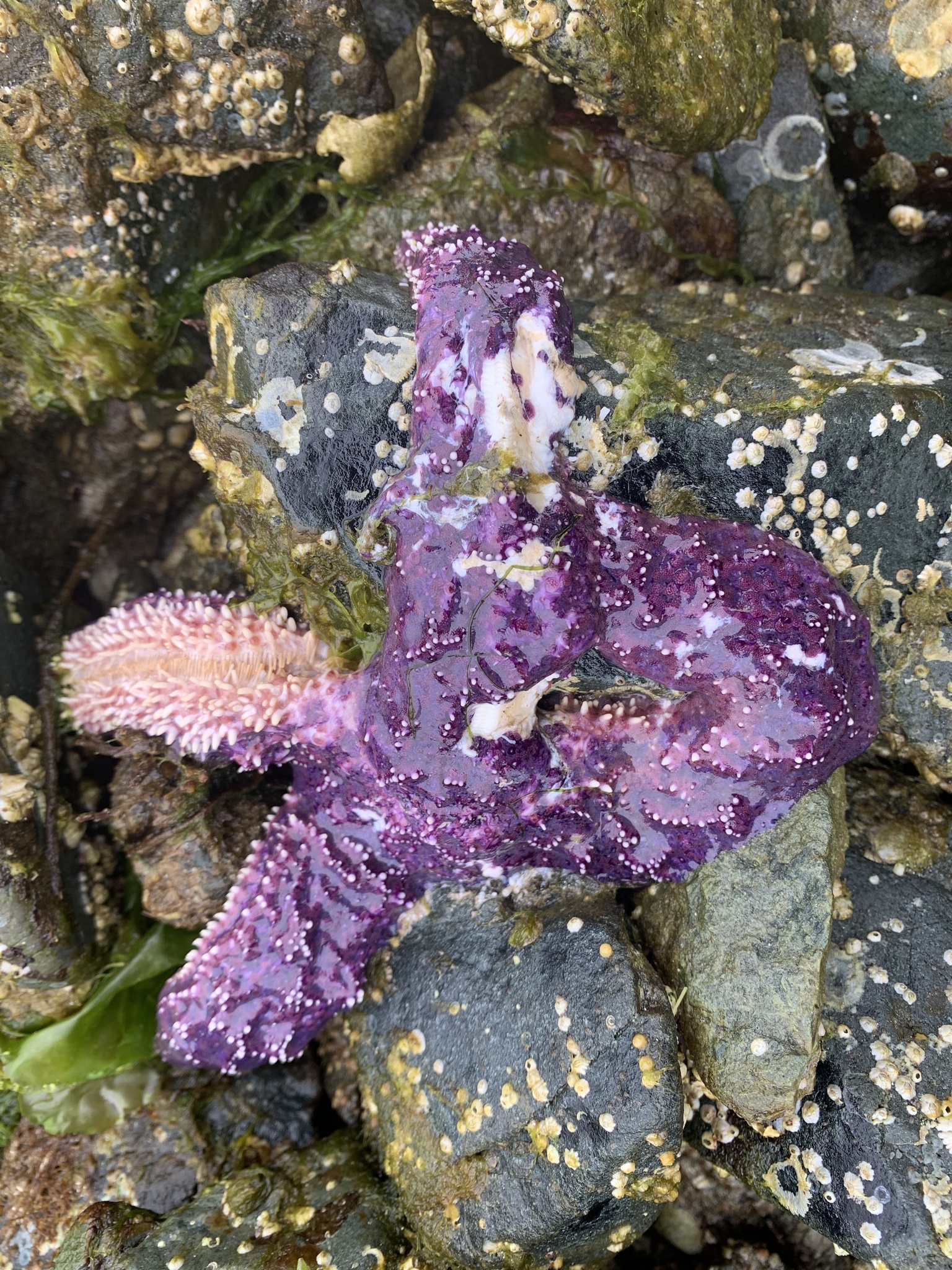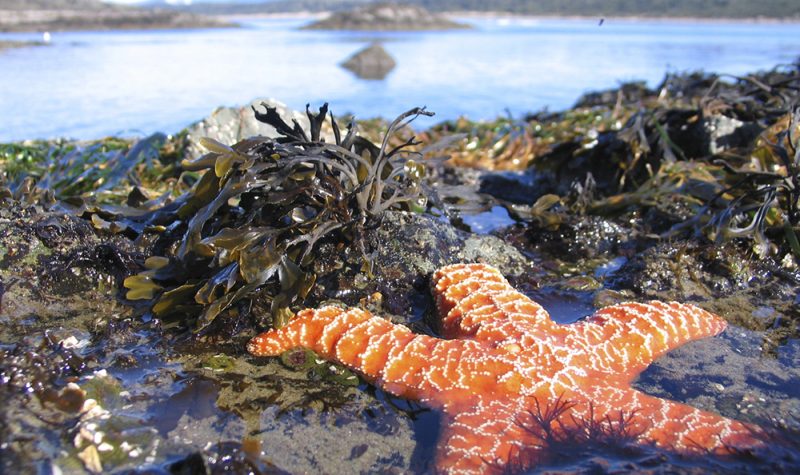Friends of Cortes Island Society (FOCI), a conservation group on Cortes Island, is spearheading a project to monitor sea stars' status in regards to sea star wasting syndrome.
In collaboration with the Hakai Institute, locals on Cortes can be a part of the monitoring process. Helen Hall, executive director of FOCI, explains how locals are making a significant impact on data intake efforts and why Cortes Island is so ideal for citizen science.
“One thing we've realized as an environmental organization, based on Cortes island, we are in one of the Northern Gulf Islands. If you go north of us, a lot of the islands have very few people living on them. So actually having people here in this remote location, recording these species like sea stars is really valuable to researchers … increasingly we've been approached about different species.”
This type of monitoring, like many programs FOCI is coordinating, invites everyone to be a scientist and record data. All ages and abilities may use iNaturalist to upload photos and location of sea stars found in the Cortes Island region. This initiative is ongoing.
In 2014, many sea stars in British Columbia suddenly died of Sea Star Wasting Syndrome. The disease appears to look like the sea star is melting.
“There's research trying to understand why that's happening," Hall said. "Possibly because the water's warming and there's more spread of disease. … the sunflower star, which is one with multiple legs. That one almost got wiped out by the wasting syndrome. Finding a few baby ones around the place, but the larger adults have just disappeared.”

Sea Star Wasting Syndrome is a sudden disease that causes the starfish to appear like it is melting. Photo courtesy of Friends of Cortes Island and the Hakai Institute.
Hall said average people may make a huge impact on the research to help these fascinating creatures survive.
“It is about people using a lot more eyes and ears on the ground. That's what citizen science is about. Trying to get local people to monitor how the scientists do the monitoring.”
For more information on FOCI and becoming a citizen scientist, visit their website friendsofcortes.org, or drop by the FOCI office in the Mansons Hall parking lot.
To hear more about Sea Stars, listen to the CKTZ website below:


